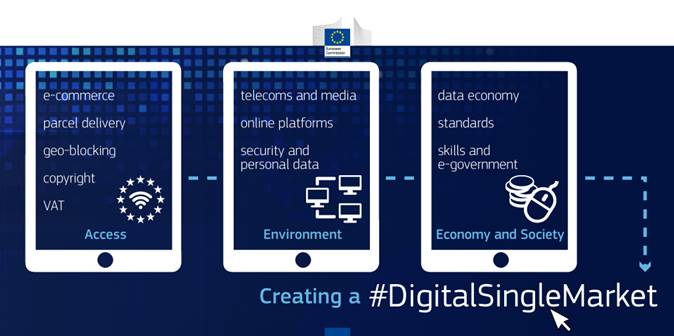In order to overcome the main obstacles to on line operations as well as the restrictions to commerce volumes among the European Union (EU) member states, the Commission has elaborated a strategy for a Digital Single Market (DSM), to be set up by the end of next year.
The EU’s plan is based on three pillars, i.e. improving the access to digital goods and services within the whole EU territory both for individuals and companies; creating a friendly context for the development of digital networks as well as services; and lastly maximizing the growth potential of digital economy.
The introduction of DSM would foster a significant wave of change in Italy, where the use of digital technology is far below the European average. In particular, according to EU Commission factsheet on Italy, internet users are 59% compared to the EU 75%. Among them, only 35% shops on line facing almost a double percentage at the European level.
Furthermore, just a tiny percentage of Small and Medium Enterprises (SMEs) sell online in Italy, namely 5.1% against 15% in the Union. The main reasons for the current situation concern high delivery costs, expensive guarantees and returns as well as ignorance considering the “rules of the game” in e-commerce. Nevertheless, 34 % of them declared they would love to expand their online sales to other EU countries where the cross-border commerce is extremely low, i.e. 4% in Italy and 6.5 % within the entire Union. As a result, the idea of a joint market would be the one of a catalyst for deeper bonds among the member states, helping them to grow together in a collective scenario.
Nonetheless, among the praises for the new initiative, EU states have also manifested some fears. Italians, for instance, appeared quite concerned about the misuse of personal data (38%) and the security of online payments (37%).
Follow @castaritaHK

